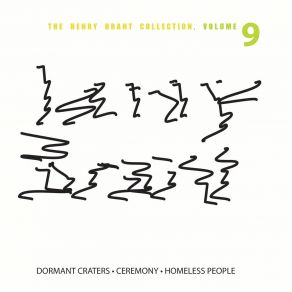The Henry Brant Collection, Vol. 9
Download links and information about The Henry Brant Collection, Vol. 9 by Pheeroan AkLaff, Gamelan Son Of Lion, Laurent Martin, Nicole Paiement, Pulse - Percussion Ensemble, Henry Brant, Tropical Soul Steel Drums, Michael Veal, Doanna Weissgerber, Adam McLearan, University Of California Santa Cruz Orchestra, Svetlana Kagan. This album was released in 2003 and it belongs to genres. It contains 3 tracks with total duration of 01:13:03 minutes.

|
|
|---|---|
| Artist: | Pheeroan AkLaff, Gamelan Son Of Lion, Laurent Martin, Nicole Paiement, Pulse - Percussion Ensemble, Henry Brant, Tropical Soul Steel Drums, Michael Veal, Doanna Weissgerber, Adam McLearan, University Of California Santa Cruz Orchestra, Svetlana Kagan |
| Release date: | 2003 |
| Genre: | |
| Tracks: | 3 |
| Duration: | 01:13:03 |
| Buy it NOW at: | |
| Buy on iTunes $9.99 | |
Tracks
[Edit]| No. | Title | Length |
|---|---|---|
| 1. | Dormant Craters | 34:49 |
| 2. | Ceremony | 12:30 |
| 3. | Homeless People (featuring Onyx Quartet) | 25:44 |
Details
[Edit]One maverick composer of the "old guard" American avant-garde, other than Elliott Carter, is still here and making music today — Henry Brant. Like Carter, Brant was in the first generation of American composers to benefit from the direct influence of the music of Charles Ives. Since 1950 Brant has pursued a unique interest in expanding instrumental resources through stereophonically conceived "spatial" scoring. Whereas Carter is regarded as an institutional icon, throughout his career Brant has received very little "love" from institutions of any kind. Recordings of Brant's works have been few and far between, and known only to a tight minority of the hardest-core collectors of American contemporary music. But recently in the concert and academic spheres there have been signs that this is turning around, especially since Brant was honored in 2002 with a Pulitzer Prize for his composition Ice Field.
The Minnesota-based contemporary music label Innova has finally begun to redress the balance with The Henry Brant Collection, Vol. 1, which contains one huge work, Northern Lights Over the Twin Cities (1985), and a little one, A Plan of the Air (1975). Northern Lights Over the Twin Cities is a wild, noisy, crazy celebration of the kitchen-sink effect in music — the multiplied instrumental groups contrast massive tone clusters against a dance band playing Glenn Miller-styled phrases, the huge chorus wails through the roof, and jagged instrumental lines tangle and separate from one another from a variety of places in the hall. Though the piece runs a whopping 96 minutes and is spread out over two CDs, it is never dull — there's always something striking and unusual happening, and like some music of Ives, parts of Northern Lights Over the Twin Cities tickle your funny bone. A Plan of the Air is less ambitious and also more serious in tone — big, dissonant chords move slowly over an area of negative space in a manner akin to "high holy minimalism," although this work was written quite a bit before that trend in music was singled out as being something specific.
American composers in the experimental tradition whose roots go back to before World War II use a distinctive tonal palette that is free of the structural rigors of serialism, and though highly dissonant, still connects with something in your brain that indicates forward direction. Brant comes right out of the center of that tradition — while there is plenty of music on this collection that sounds unusual and out of the way, there is little that sounds unfamiliar or difficult to grasp. One reservation, and it's a considerable one, is the sound. These are university-made recordings of live performances, and are far from being top quality — the recorded image is not placed in a discreet stereophonic ambience so much as it merely represents the multiple instrumental groups as being either close or far away. Some of the music that is played further away demonstrates telltale signs of tape hiss, and here and there parts of the tape of Northern Lights Over the Twin Cities break up a bit. But these are the sole recordings of works that have been performed only once or twice, and they will certainly do for now. Mastering engineer Teo Macero seems to have gotten the best than can be had out of these sources, which weren't made for commercial release in the first place. If you are a frequent flyer in the realm of American contemporary music, The Henry Brant Collection, Vol. 1 is a trip that you will want to take, not miss.